Living Like Christ: A Banquet of Spiritual Exercises
From the Center for Vital Leadership of the Peninsula-Delaware and Baltimore-Washington Conferences
Becoming more like Christ and growing in love requires us to connect with our whole selves–mind, body and spirit–so that we might better connect with God and others. This experiential approach is offered to deepen your discipleship through spiritual practices that build emotional intelligence and help us become more like Christ. Drawing on our Wesleyan theology, the life of Jesus and the new field of Positive Intelligence, may these themes bless your Lenten journey.
Each set of days has a theme with different exercises each day. The six themes are:
 Building Spiritual Muscles
Building Spiritual Muscles
Are your current spiritual practices enough for you to handle the overwhelm? This week will build our spiritual practices – mind, body and spirit.
 Growing in Gratitude
Growing in Gratitude
What and who are you paying attention to? Who gives you every perfect gift? Are you relying on your own strength or on the grace of God? This week will build our practice of gratitude.
 Honoring Your Pain
Honoring Your Pain
It is vital that we honor and accept without judgment our pain and emotions. This week we will build our practice of naming.
 Unblocking Love
Unblocking Love
Many pay more attention to voices of shame, blame, self-doubt and false narratives that block them from being able to hear God’s voice and be hopeful and creative. This week we will build our practice of identifying the internal, harmful voices that prevent us from better sensing God’s whisper.
 Space for the New to Emerge
Space for the New to Emerge
We belong to God, and, therefore, are expansive. We change and grow. This week, we focus on making space in a variety of areas: in our sense of self, ideas about power, understanding of community, time, freedom and love. As we change, new and abundant life emerges.
 Deepening Awareness
Deepening Awareness
This is more than awareness of abundant life, but embodying it actively. This week will build our practice of doing what we say we believe.
An Invitation to a 40-Day Experience
 Take three deep breaths and feel the subtle movements of your body as you breathe. Your body is a container for the Holy Spirit; a temple. Offer a word of thanks for the wonder of God in you and with you.
Take three deep breaths and feel the subtle movements of your body as you breathe. Your body is a container for the Holy Spirit; a temple. Offer a word of thanks for the wonder of God in you and with you.
Spiritual exercises can provide an anchor in our busy days. They can bring hope, renewal and a sense of direction. When we engage in these spiritual disciplines, rather than trying harder to figure things out, we back off, get quiet and engage our bodies. We notice that what emerges, which is often unexpected, is often just what we need. Helpful results show up more from “allowing” than working harder, more from being drawn in than pushing harder, and more from integrating our whole selves rather than focusing purely on our thoughts.
You may regularly engage in spiritual exercises such as offering gratitude, intercessory prayer, Bible study, serving others, fasting and weekly worship. This Lent, we invite you to engage in some practices that work on the connection between mind and body. Based on recent findings of neuroscience, there is more going on when we engage in spiritual exercises than we may have realized – physical changes and new pathways in our brain can evolve. John Wesley was clearly on to something when he stressed engaging in the “means of grace” in support of our growing in love and living like Christ.
One of the primary resources for Living Like Christ is Positive Intelligence (www.positiveintelligence.com). Based on emotional intelligence, positive psychology and neuroscience, it is an accessible and contemporary approach to understanding and engaging what is universal in the human experience. Using accessible language and tools, Positive Intelligence assists in developing our self-view and identity within our Christian worldview. It is part of the long history of Christianity and continues to evolve by integrating spiritual practices.
Over the next 40 days, Living Like Christ will offer simple and practical tools to deal with the anxieties and internal struggles we continually face. It begins by offering some simple spiritual themes and practices: moving to gratitude, naming and honoring our pain, addressing blocks that keep us from being and living our true selves, providing tools for seeing with new eyes, and finally going forth to live abundant lives (John 10:10). You’re invited to join in this amazing journey which we offer for just such a time as this.
Building Spiritual Muscles
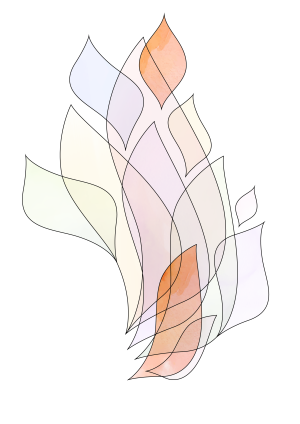 "For everything created by God is good, and nothing is to be rejected, provided it is received with thanksgiving, for it is sanctified by God’s word and by prayer.
"For everything created by God is good, and nothing is to be rejected, provided it is received with thanksgiving, for it is sanctified by God’s word and by prayer.
If you put these instructions before the brothers and sisters, you will be a good servant[a] of Christ Jesus, nourished on the words of the faith and of the sound teaching that you have followed. Have nothing to do with profane and foolish tales. Train yourself in godliness, for, while physical training is of some value, godliness is valuable in every way, holding promise for both the present life and the life to come.” – 1 Timothy 4:1-8
“It was a common saying among the Christians in the primitive Church, "The soul and the body make a [person]; the spirit and discipline make a Christian;" implying that none could be real Christians, without the help of Christian discipline. But if this be so, is it any wonder that we find so few Christians; for where is Christian discipline?”
― John Wesley
This week you are invited to become exquisitely aware of the gifts of your body by engaging in a variety of sensory-based practices. Simply engaging in these practices creates openings for becoming present and for developing a deeper awareness of your being in the world. This week, pay attention to your senses and how you experience them in your body.
During these exercises, we may grow in our understanding of sanctifying grace. This aspect of grace involves the ongoing work of the Holy Spirit. It changes us so that our lives are increasingly conformed to the mind of Christ. John Wesley, Methodism’s founder, called this lifelong process sanctification, or becoming “perfected in love.” Wesley did not mean moral perfection, he meant growing in love.
How do we grow in love? Wesley recommended we participate in the “means of grace,” spiritual disciplines intended to build the “muscles” of one’s character and expand the breadth of one’s inner life. Spiritual disciplines are like training exercises for the spiritual life. They function to move our critical voices to the back seat so they are no longer driving our lives.
Writing/Photo Prompt
What spiritual practice do you consistently do that feeds your soul? Which spiritual practices do you want to more regularly attend to? Don’t feel like writing? Alternatively, take a picture of something that reminds you to make time for spiritual disciplines.
Prayer
God of Grace and God of Glory: Be with us in body, mind, and soul this week as we immerse ourselves in a new spiritual journey. Help us to more faithfully practice spiritual disciplines and grow in love so that we might live as people created in your image. Amen.
Day 1: Ash Wednesday Spiritual Muscle Exercise
From dust we have come and to dust we shall return. Today’s practice is to receive ashes on your forehead in worship or some other ritual setting. As you receive the ashes, pause to reflect on your mortality and gain a perspective on how you live life in the present. Every moment you have been given is a gift. And, you have the opportunity to live in such a way that recognizes that you are neither greater nor lesser than anyone else. In the end, we all come from God and return to God. And, at every moment on your journey, you belong to God.
May you discover, more and more, the rich life that is yours today and tomorrow as you live in partnership with your loving Creator.
Day 2: Spiritual Muscle Exercise
Neuroscience has shown that when you focus on a physical sensation for 10 seconds, you quiet your mind and strengthen your brain. This week, we will introduce several ways of being present to the physical sensations you feel. After each exercise, give thanks for the awe and wonder of your body. Today, when you eat a meal, take 10 seconds to take in the aroma of your food. Next, feel the sensations of temperature and texture of the food in your mouth, the sensations of your teeth chewing, and your body swallowing. Give thanks for the wonder of food and how it nourishes your body.
Day 3: Spiritual Muscle Exercise
When you listen or feel the vibrations of music today, try zoning in rather than zoning out. See if you can take one or two minutes to really take in what you are hearing/feeling. For instance, choose one instrument or beat/vibration and pay close attention to it. Be fully present to the sounds and rhythm of the notes or sensations. Give thanks for the gift of hearing or the gift of feeling the beat.
Day 4: Spiritual Muscle Exercise
As you move today, pay close attention to one of your five senses as you are moving. Listen closely to your body breathing. Feel the sensations of your muscles contracting and stretching. Focus on one thing in your surroundings and really see it. If you are outside, feel the wind on your face. Give thanks that you are fearfully and wonderfully made.
Sunday, February 18: With awareness and attention, we celebrate Christ’s resurrection.
Day 5: Spiritual Muscle Exercise
While walking today, pay attention to the weight of your body on your feet, the action of your toes and ankles. Feel the movement of your knees, your leg muscles, and your hips holding your body in place. Give thanks for movement and the way your muscles work together to allow you to move.
Day 6: Spiritual Muscle Exercise
If you drink hot coffee or tea or enjoy an ice-cold drink today, feel the shape and texture of the cup. Feel the temperature radiating from the cup in your hands. Take in the aroma. Give thanks for the gift of sensation in your hands and mouth.
Day 7: Spiritual Muscle Exercise
Rub two fingers together today with such attention that you can feel the subtle ridges in each finger. Next, touch the fingertips of both hands together and sense those sensations. Then, feel both of your hands and palms, the bumps and crevices. Give thanks for your incredible hands.
Day 8: Spiritual Muscle Exercise
While sitting today, focus your attention on one thing in front of you. Become aware of what you see. See colors and shades with great clarity. See textures and shapes in great detail. Now, focus your attention on your sense of touch. Move your fingertips to feel the nuanced sensations of touch on your fingertips. Give thanks for the colors and shapes you get to experience.
Day 9: Spiritual Muscle Exercise
Sit quietly in your chair. Feel your feet on the floor, your back against the seat, your shoulders down, your head up. Mentally say: “I am here in the presence of God. Surrounded by this furniture. Sitting in this seat. Doing nothing.” When you drift away, come back to this place.
Day 10: Spiritual Muscle Exercise
As you move through your day, notice what you see. Name what your eye lands on and quickly identify something that it does: i.e. Light, shines. Bird, sings. Wind, whistles. Trees, sway. Bugs, buzz. Car tires, roll. Sun, warms. Etc.
Sunday, February 25: Fully present and with all our senses, we celebrate Christ’s resurrection.
Growing in Gratitude
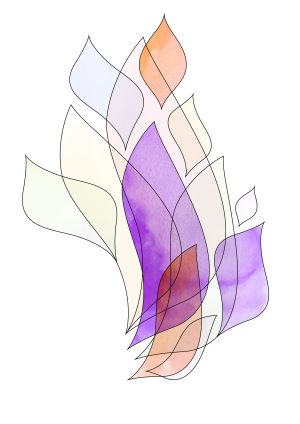 “O give thanks to the Lord, for he is good;
“O give thanks to the Lord, for he is good;
his steadfast love endures forever!
Let Israel say,
“His steadfast love endures forever.”
Let the house of Aaron say,
“His steadfast love endures forever.”
Let those who fear the Lord say,
“His steadfast love endures forever.”
Out of my distress I called on the Lord;
the Lord answered me and set me in a broad place.
With the Lord on my side I do not fear.
What can mortals do to me?
The Lord is on my side to help me;
I shall look in triumph on those who hate me.
It is better to take refuge in the Lord
than to put confidence in mortals.
It is better to take refuge in the Lord
than to put confidence in princes.
– Psalm 118:1-9
“Thanksgiving is inseparable from true prayer; it is almost essentially connected with it. One who always prays is ever giving praise, whether in ease or pain, both for prosperity and for the greatest adversity. He blesses God for all things, looks on them as coming from [God], and receives them for [God’s] sake -- not choosing nor refusing, liking or disliking, anything, but only as it is agreeable or disagreeable to [God’s] perfect will.”
― John Wesley, How to Pray: The Best of John Wesley on Prayer
"Everything we do should be a result of our gratitude for what God has done for us." – Lauryn Hill
After a welcome string of warm days, we are seeing signs of spring everywhere. It can be startling to witness the transformation. Some of the flowering trees have begun to show their amazing colors – including one nearby that looks as if it is covered in fluffy snow. Daffodils are turning many brown areas yellow; an occasional colorful tulip has popped through, and dandelions are sprouting all over the place.
We can be grateful for what is and expectant about what is continuing to evolve. We all go off course at times, and that is part of life as well. Yet, the potential within us remains. In the cold and snow of winter, there is a spring that waits to be. No matter how bad things get, and how distressed we feel, there is something hopeful waiting in the wings. For even in the worst of times, there still is God. Great is God’s faithfulness! Details are often not for us to know ahead of time. They are for us to gratefully experience as we tend to what is in front of us.
It is easy to point to what is falling and failing these days. Yet friends, as Alfred Tennyson in Ulysses said, “Beyond the horizon, there is more, there is more.” There is more for us, too, my friends, more to receive and to be grateful for every day.
This week, we will focus on the practice of gratitude for grace, which abounds in all seasons of our lives.
Writing/Photo Prompt
Take some time to reflect on the prompt: “What and who am I paying attention to?” Who gives you every perfect gift? Are you relying on your own strength or on the grace of God? Don’t feel like writing? Alternatively, take a picture of something that makes your heart glad.
Prayer
God of the Horizon: For all you do and for all you are, we give thanks. Be with us this week as we awaken to the world around us and all the many reasons we have to be grateful. Help us to recognize that even in the darkness, there are glimpses of light. Let us walk, thankful and blessed, as light-bearers to the world. Amen.
Day 11: Gratitude Exercise
Gratitude reminds us of our interdependence and of the ways we receive from others. There are two aspects of gratitude – appreciation and thankfulness.
For appreciation, see what words naturally follow this sentence prompt: “I am grateful for…” Write what you appreciate, cherish, relish, and delight in. This might include experiences, qualities, or anything else that follows these words.
For thankfulness, you’re invited to see what words naturally follow this sentence prompt: “I am thankful to…” Name and thank those from whom you receive, those who support you and have helped you in your daily life.
This gratitude practice is called “The 42” – thankful for and thankful to. Start each day this week with a “42.”
Day 12: Gratitude Exercise
Rabbi Abraham Joshua Heschel said, “The beginning of prayer is praise. The power of worship is in song. To worship is to join the cosmos in praising God.” Find ways of joining the cosmos in giving thanks for God and to God today. Do a “42” with God today.
Day 13: Gratitude Exercise
Psalm 47:1 in The Message proclaims, “Applause, everyone. Bravo, bravissimo! Shout God-songs at the top of your lungs!” Do you have a song in your heart today? Sing it out!
Day 14: Gratitude Exercise
Begin every day with gratitude by keeping a gratitude journal. Keep a record of the gifts God gives you. Consider downloading the apps: “Gratitude Journal, 365” or: “Five Minute Journal: Cultivate Gratitude This Year.” These are both proven and excellent tools for helping us offer gratitude every day.
Day 15: Gratitude Exercise
End the day by remembering and giving thanks for what took place and who you interacted with throughout the day. Focus on one particular experience and tell God what it means to you.
Day 16: Gratitude Exercise
Gratitude is possible, not because everything goes perfectly, but because God is present. As both Erasmus and Carl Jung remind us, “Bidden or unbidden, God is always present.” Reflect on how thankfulness is an antidote to a critical spirit. How has a grateful person affected you?
Sunday, March 3: With gratitude, we celebrate Christ’s resurrection.
Honoring Your Pain
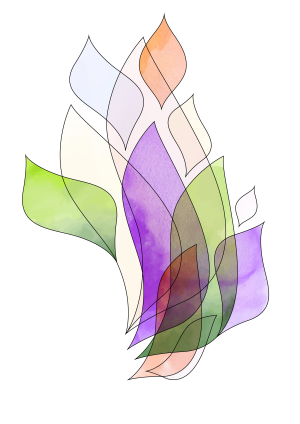 “Therefore, since we have been justified through faith, we have peace with God through our Lord Jesus Christ, through whom we have gained access by faith into this grace in which we now stand. And we boast in the hope of the glory of God. Not only so, but we also glory in our sufferings, because we know that suffering produces perseverance; perseverance, character; and character, hope. And hope does not put us to shame, because God’s love has been poured out into our hearts through the Holy Spirit, who has been given to us.”
“Therefore, since we have been justified through faith, we have peace with God through our Lord Jesus Christ, through whom we have gained access by faith into this grace in which we now stand. And we boast in the hope of the glory of God. Not only so, but we also glory in our sufferings, because we know that suffering produces perseverance; perseverance, character; and character, hope. And hope does not put us to shame, because God’s love has been poured out into our hearts through the Holy Spirit, who has been given to us.”
– Romans 5:3-5
“As long as you feel your own weakness and helplessness, you will find help from above.” – John Wesley
“Nobody escapes being wounded. We are all wounded people, whether physically, emotionally, or spiritually. The main question is not ‘how can we hide our wounds,’ so we don’t have to be embarrassed, but ‘how can we put our woundedness to the service of others?’ When our wounds cease to be a source of shame, and become a source of healing, we have become wounded healers. – Henri Nouwen, The Wounded Healer
Spiritual leaders from a variety of traditions talk about an emotional stance called “strong back, soft front.” The idea is to have an interior spine that is sturdy and flexible while facing the world with openness and tenderness. The place in our body where these two meet – strong back and soft front – is the brave and tender ground in which we relate to ourselves and to others.
When I look at depictions of the Madonna and Child, I am touched by the strong back and soft front that Mary conveys. I sense God drawing close in these portrayals. I can almost feel God’s strong arms enfolding me and pulling me close like a child. God was the first to “try a little tenderness,” as the song says. And God continues, despite all that might argue to the contrary, to this very moment in time.
We develop a strong back and soft front by being open and vulnerable to the pain we feel. Ruth Haley Barton, in Sacred Rhythms, offers exercises for naming our pain. For a small taste of this practice:
Sit comfortably, with your feet flat on the floor, your eyes closed, and breathe regularly and deeply. Notice the sounds and movements around you, but let them drift away as you begin to notice the presence of the holy. Slowly and calmly, open yourself to this Spirit of God in your midst.
As you sit in this sacred moment, allow your mind to gently reflect on your life as it’s unfolding. Don’t try to control your thoughts, but allow your soul to acknowledge a truth that may seem hard for you. Is there a sense of grief in your life, or a pain or fear, you’ve been trying to push away. Do you carry unshed tears, or feel anxious about a question you feel called to confront? Is there some feeling that you need to release or begin to examine?
As you sit with holy calm and confidence, be aware of God’s presence. Don’t try to remedy anything in your life right now. Just begin the process of handing those things you’re holding over to God. Allow God to take over, give yourself permission to let God fix and heal. How does it feel to be still, name your feelings, and allow God to begin to offer healing and wholeness?
Writing/Photo Prompt
Ponder and then write your response to the prompt: “God, right now I feel…” Alternatively, take a picture that captures how you feel and “how it is with your soul.”
Prayer
Ever-present God: While it is often so difficult, please help us to open our hearts so that we can live with our hearts wide-open, vulnerable and true. Make us brave, make us tender. Empower us to find our strength and our healing in you. Amen
Day 17: Naming Pain Exercise
Make a list of feeling words linked to pain; for example, anxious, apathetic, confused, defeated, disgusted, enraged, paranoid, weepy, undecided. Then honor your pain by letting these words prompt you to articulate what drains you or what keeps you from fully living your life. “Words that describe my pain are….”
Day 18: Naming Pain Exercise
Honoring means to assign value to and to treat with high regard. When you honor your pain, you acknowledge it is yours and you need not deny or minimize it. Respond to this prompt: “As I look at my life today, what troubles me is…”
Day 19: Naming Pain Exercise
Those who are white, particularly, can acknowledge the pain they continue to inflict on black folk by living in what Joseph Lowery calls, the 51st state -- the state of denial. We would rather try and forget or ignore the pain that comes through us. Inequality persists and white folk, especially, continue to be the privileged beneficiaries of cultural systems. The pain we inflict, even unintentionally, comes back to us. It saps our energy and leaves us disconnected from others. Respond to this writing prompt: “Pain that I intentionally or unintentionally inflict on others is…”
Day 20: Naming Pain Exercise
Theologian Walter Brueggeman said, “Bringing hurt to public expression is an important first step in the criticism that makes clear that things are not as they should be, not as they were promised, and not as they will and must be.” What injustices and hurts do you need to name so they can be addressed? Respond to this writing prompt: “My heart cries for justice in the face of these injustices…”
Day 21: Naming Pain Exercise
Learn various ways to weep. A mother weeps silent tears when she keeps vigil at a sick child’s bedside. A family member weeps tears of fear when they find that their sibling is addicted to drugs. A spouse weeps bitter tears when they find they have been betrayed. A friend weeps tears of rage when injustices have been ignored and are allowed to continue. Learn the various ways to weep. In the Hasidic tradition, it is said, “One day the heart breaks, and the words fall in.” Our capacity for heartbreak is not something to run from but something to run towards. Respond to this writing prompt: “My heart is breaking for….”
Day 22: Naming Pain Exercise
The Rev. Howard Thurman pointed to the power of honoring our collective pain and the spiritual exercise of justice in “The Mood of Christmas.” In this poem, he writes of fear and pain and love delayed, and concludes “Christmas is waiting to be born: In you, in me, in all mankind.” Complete this writing prompt: “What waits to be born in me is….”
Sunday, March 10: Amid our woundedness, we celebrate Christ’s resurrection.
Unblocking Love
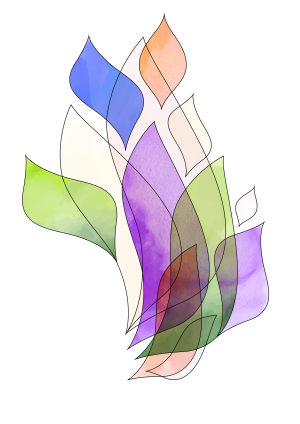 And the Spirit said to Elijah, “Go out and stand on the mountain before the Lord, for the Lord is about to pass by.” Now there was a great wind, so strong that it was splitting mountains and breaking rocks in pieces before the Lord, but the Lord was not in the wind, and after the wind an earthquake, but the Lord was not in the earthquake, and after the earthquake a fire, but the Lord was not in the fire, and after the fire a sound of sheer silence. When Elijah heard it, he wrapped his face in his mantle and went out and stood at the entrance of the cave. Then there came a still, small voice to him that said, “What are you doing here, Elijah?” – 1 Kings 19:11-13
And the Spirit said to Elijah, “Go out and stand on the mountain before the Lord, for the Lord is about to pass by.” Now there was a great wind, so strong that it was splitting mountains and breaking rocks in pieces before the Lord, but the Lord was not in the wind, and after the wind an earthquake, but the Lord was not in the earthquake, and after the earthquake a fire, but the Lord was not in the fire, and after the fire a sound of sheer silence. When Elijah heard it, he wrapped his face in his mantle and went out and stood at the entrance of the cave. Then there came a still, small voice to him that said, “What are you doing here, Elijah?” – 1 Kings 19:11-13
“I have never known more than fifteen minutes of anxiety or fear. Whenever I feel fearful emotions overtaking me, I just close my eyes and thank God that He is still on the throne reigning overthink and I take comfort in His control of the affairs of my life.” – John Wesley
“The important thing is not to think much, but to love much, and to do whatever best awakens you to love.” – Teresa of Avila
Love is the greatest force in the universe. It is the heartbeat of the moral cosmos. Those who love are participants in the being of God. — Dr. Martin Luther King Jr.
As children of God who are all made in God’s image, we are loved and we are love. All people are created with unique love-based gifts. This is who we are. As humans, we also have inner voices, tendencies and attachments that stand in the way of love. They mask and block us from love of ourselves, others and circumstances. They may lead to shame, guilt, blame, anger or anxiety. We go from quiet discernment of reality to strong judgments based on what our critical voices tell us.
These critical voices often have their genesis in childhood. We unconsciously adopted them as a means of security, in order to be accepted or to maintain independence and boundaries from others. They often lead us to assume the worst and exaggerate the negative as a means of survival. This negative approach continues to cause us to question what is wrong with us, what is wrong with others, and what is wrong with the circumstances we experience. It badgers us for past mistakes or current shortcomings rather than appreciating who we are. It convinces us that someone is at fault, which leads to superior/inferior comparisons. These critical voices distract, detract, and distort who we are and who others are. Fear rushes in and takes the place of love.
The prophet Elijah, in 1 Kings 19, was afraid for his life because of Jezebel’s threats and his own inner doubts. He sat down under a solitary broom tree and asked that he might die. The story unfolds.
We read how Elijah was nearly overtaken by the critical voices – by fears within and fears without. He was depressed and afraid and tried to run away and hide from his fears. After brooding for 40 days and nights, he arrived at the top of a mountain in a cave where he concentrated hard on finding God’s voice in the wind, earthquake, and fire – the loud, incessant, critical voices. But God was not in any of these loud voices. And, God is not in our loud, condemning voices either. God’s voice emerges when we are quiet and still. It comes to us when we silence our fears. God’s loving whisper is always available when we quiet and shrink the voices coming from judgment and fear.
Writing/Photo Prompt
Take some time to journal your thoughts on the question: “What’s preventing me from feeling/hearing/attending to God’s whisper?” Or, if you’d like to approach this from a different angle, take a photo that illustrates a fear or anxiety that you’re moving beyond.
Prayer
My Dearest God, who speaks with resounding boldness and in a still small voice, help me to recognize when I am getting in my own way, when I am allowing fear and anxiety to keep me from being all that you created me to be. Let me find my way, guided by you as my North Star, and let me step out into this week in love. Amen.
Day 23: Unblocking Exercise
Where do your fears keep you from being fully present in your life? When can you find the time for silence and listening? In a spirit of stillness or prayer, let yourself sit for a few moments, and be aware of your breathing as you open your heart to that “still, small voice.”
Day 24: Unblocking Exercise
According to The Spiritual Disciples Handbook by Adele Ahlberg Calhoun, “Each of us has a beautiful true self inside of us. It is God’s gift to us. But many of us can hardly take this in. Somewhere life taught us that our true self wasn’t welcome or safe or wanted. Consequently, we learned to hide our true selves. In its place, we learned to construct a false self. The false self strives to cobble together an identity from secondary things: reputation, success, status, family, jobs, health, relationships. But an identity based on having these things doesn’t last. ... Our truest identity can never be something we accomplish, earn, or prove. Our identity is a gift we receive from God.… In the presence of Christ, we lay down the weight of having to manage an image. … An identity that is rooted in Christ has a restful center.“ Christ is forming in us. Not to make us someone we are not, but to enable us to become our true selves. Respond to this writing prompt: “I confess I have tried to base my identity on ….”
Day 25: Unblocking Exercise
Take an attachments inventory. Write a list of your “have to’s” the things you are attached to and include attitudes, behaviors and addictive attachments such as sarcasm, aloofness, interrupting, temper tantrums, gossiping, being pushy, always having to be right. Ask God to bring to your awareness to the times you instinctively move into one of these reactions. Respond to this writing prompt: “A response I would like to cultivate instead of _______ is…”
Day 26: Unblocking Exercise
Gerald May, in The Awakening Heart, writes: In quietness, we often notice things we would rather not notice or feel. Pockets of sadness, or anger, or loneliness, or impatience begin to surface. Our own outer agenda looms larger than our desire to be with God in silence. And as the silence settles in and nothing seems to be happening, we often struggle with the feeling that we are wasting time. Everything we notice in this struggle can be an invitation to prayer. Like a can opener, the silence opens up the contents of our hearts, allowing us deeper access to God than we experience at other times. … The holy one has access to places we didn’t even know existed in the midst of the hubbub.” Go into silence, placing yourself in the presence of God with the words “Here I am.” Keep repeating this phrase. Let the current of God’s Spirit carry you.
Day 27: Unblocking Exercise
Turn to Scripture for strength and power to confront and minimize the lying, confusing, crushing, or confusing voices that come at you and to affirm who you are. Here are some passages to ponder:
- I call on the name of Jesus to silence every other name. (Philippians 2: 10-11)
- I put on the whole armor of God. (Ephesians 6: 10-18)
- I put on the mind of Christ. (1 Corinthians 2:16)
- It is no longer I who lives, but Christ who lives in me. (Galatians 2:20)
- Jesus came so that I might have life and have it abundantly. (John 10:10)
- I am not afraid because I am not alone. (Matthew 28:20)
- Fear not, for I am with you. (Isaiah 41:10)
- Perfect love casts out fear. (1 John 4:18)
- Love is stronger than death. (Song of Solomon 8:6)
- Nothing can separate us from the love of God in Christ Jesus. (Romans 8:38-39)
Choose one or more of these, or choose another and refer to it regularly to take power away from whatever is blocking love.
Day 28: Unblocking Exercise
Jesus often spoke about attachments, those things that come between us and God. He said: have no worries about food, clothing, or what you say or do; lose yourself to find yourself; take no thought about tomorrow; forgive 70 times 7; die to be reborn, trust and follow; take the log out of your own eye so you can see the splinter in your neighbor’s. He addressed biases, phobias and fears of many kinds. He even went so far as to say that we are to love our enemies – as we love ourselves. Jesus’ healing shifts our neural pathways from fear and shame to love and freedom. Reflect on this observation: “There is no block that God’s grace cannot penetrate and redeem with the power of love.” Let these words sink in: You are forgiven and set free. Thanks be to God! Respond to this prompt: “ God, thank you for setting me free from… so that I can live the abundant life you have called me to live.”
Sunday, March 17: As we set aside the things that separate us from God, we celebrate Christ’s resurrection.
Space for the New to Emerge
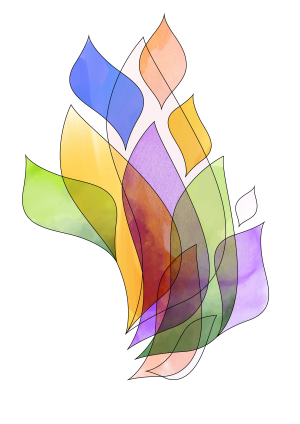 “For we are God’s coworkers, working together; you are God’s field, God’s building.”
“For we are God’s coworkers, working together; you are God’s field, God’s building.”
– 1 Corinthians 3:9
“Again, he began to teach beside the sea. Such a very large crowd gathered around him that he got into a boat on the sea and sat there, while the whole crowd was beside the sea on the land. He began to teach them many things in parables, and in his teaching he said to them: “Listen! A sower went out to sow. And as he sowed, some seed fell on a path, and the birds came and ate it up. Other seed fell on rocky ground, where it did not have much soil, and it sprang up quickly, since it had no depth of soil. And when the sun rose, it was scorched, and since it had no root it withered away. Other seed fell among thorns, and the thorns grew up and choked it, and it yielded no grain. Other seed fell into good soil and brought forth grain, growing up and increasing and yielding thirty and sixty and a hundredfold.” And he said, “If you have ears to hear, then hear!” – Mark 4:1-9
“I continue to dream and pray about a revival of holiness in our day that moves forth in mission and creates an authentic community in which each person can be unleashed through the empowerment of the Spirit to fulfill God's creational intentions.” – John Wesley
What do you picture when you hear the word field? Wildflowers stretch across a hilltop? Waves of grain flowing in the wind. A patchwork quilt of farms in the countryside? Thousands of sunflowers turned toward the sun? A wintertime field covered in glistening snow?
Fields are about seeds, plants, growth, cultivation, and harvest. They are about soil and sun, rain and regeneration. “You are God’s field”, says Paul. You are receptors of God’s word. The seed is planted so it can root and grow in you. You are the soil that Jesus talks about – open to what is taught, experienced, and proclaimed. You take it in and have the choice of doing something with it.
The Shepherd of Hermas was a Christian writer in the second century. He wrote, “instead of acquiring actual fields, costly furnishings, buildings and frail dwellings, buy for yourselves people in distress. It is far, far better to buy this kind of field, which is quite different and which you can find again. This “extravagance” is beautiful and holy; it brings no grief and fear, it brings nothing but joy.”
People are God’s field. We are in the people business! People are of God and people belong to God. People are where God does some of God’s best work! Can you imagine yourself as humus? (The root of humility is humus meaning the organic component of soil.) Sometimes, we forget we are God’s soil. We forget we are receivers first, and actors second. We forget that we are part of everything that is and that we are here for the sake of seeds’ growth. We fail to receive new seeds into the soil of our lives, to invest in the lives of those around us, to allow and trust new plants to grow in us. Sometimes our soil is rocky and unreceptive. Yet, God has an amazing way of bringing a beautiful array to fruition even through our obstacles.
Fields are open and expansive. Cycles of death and new life continually take place in fields. Fields are settings for something beautiful to happen – for something new to come. They are welcoming and nurturing; places to feed and places to find rest. I wonder – how might we, in our particular field, provide spiritual sustenance and rest for others?
We are God’s field -- where God’s word takes root and grows to flower and fruit to feed the world. God wants to do something in us to enrich and serve others – the greater field. How about becoming more intentional about the state of our field? It is up to us to take hold of who we can be and what we are called to do in our field – open to what God is waiting to do in and through us when we gratefully receive from God’s storehouse of seeds.
Writing/Photo Prompt
What does it mean that you are God’s field? What is God wanting to grow in you?” Or, if you prefer, go out into nature and find a field or garden where God’s magnificent work is on display and take a picture to remind you of what is possible when new things emerge.
Prayer
Nurturing God: Tend to our growth as we seek to bear the fruit of discipleship. We know that you make all things new. Create in us new and clean hearts, let us shine for others with the beauty and boldness of your amazing love and grace. Amen.
Day 29: Space for the New Exercise
Today, we focus on “a wider sense of self.” In the course of a day, we move through different expressions of identity. We might inhabit a family identity in the morning, a team self while taking on a role at work, our social self when enjoying a walk with a friend, and a global self when viewing a photo of Earth from space. Psychologist Marilynn Brewer writes, “When the definition of self widens, the meaning of self-interest and self-serving motivations changes accordingly. The extreme individualism of our culture is harmful to a view of self, which is connected to personal, communal and planetary well-being. To promote recovery and healing in our world, we need to embody a larger story of who and what we are, while not losing our individual and unique identity.“
Imagine someone asking you who you are. What would you say? Try asking this question of yourself several times and note the different ways you answer it each time.
Day 30: Space for the New Exercise
Christians claim a different kind of power. In the old story, power was based on having a position of dominance or advantage over others, a position that conveyed privileged access to resources and influence. This view led to power as a possession to be held, defended, and accumulated and is only available to some. While we may believe we have moved away from this view, its allure continues to be with us.
The word power comes from the Latin word potere which means “to be able.” This kind of power is not about dominating but about giving people the agency to address the circumstances we are in. In his book, Long Walk to Freedom, Nelson Mandela, while in prison, employed a different kind of power: “My solitude gave me a certain liberty, and I resolved to use it to do something I had been pondering for a long time: begin discussions with the government," he wrote. “This would be extremely sensitive. Both sides regarded discussions as a sign of weakness and betrayal. Neither would come to the table until the other made significant concessions. … Someone from our side needed to take the first step.”
When we respond to a situation in a way that promotes healing and transformation, we are expressing power. This kind of power is based on synergy, where what emerges would not have taken place if the parties had worked alone or in competition. This is power based on the idea of emergence. It is liberating because it frees us from the need to know the results of our actions ahead of time.
Respond to this writing prompt: “What empowers me is….”
Day 31: Space for the New Exercise
Today we delve into a richer experience of community. We can think of community as having different forms: groups we feel at home in, the wider community around us, and the global community of humanity. Rev. Martin Luther King, Jr. was in a prison cell in Birmingham in 1963 when he wrote: “I am cognizant of the interrelatedness of all communities and states…. Injustice anywhere is a threat to justice everywhere. We are caught in an inescapable network of mutuality, tied in a single garment of destiny. What affects one directly, affects all indirectly.”
The interdependence of life is found in the wisdom of many indigenous cultures. As the Mohawk Thanksgiving Prayer states, “We have been given the duty to live in balance and harmony with each other and all living things.”
As a prompt, do some writing, based on the reflection: “How might compassion and insight undo the thinking that leads to creating enemies?"
Day 32: Space for the New Exercise
Today is about expanding our view of time. We are living in a moment of grace when we can see the interrelationship of all things – yet these moments of grace are transitory. We will meet this moment or we will miss it.
Religious scholar Thomas Berry said, “We are in such a mess that we need to dream the way forward – to imagine new ways of being. “
Quarterbacks on football teams talk about the speed of the game unfolding in front of them. They only have a few precious seconds to make critical decisions that affect a play, a series, and potentially the outcome of a game. Some of them offer a curious comment. After they have run the same plays over and over again, their instincts kick in, they can sense what the movements of the opposing team mean, and they report that “time slows down.” They don’t feel rushed and the “game comes to them.”
We live in a rushed time. The speed of life has quickened to the point that we almost forget to breathe. It is time for us to reinhabit time. To let life come to us. We can slow down and widen our time span. In so doing, we open up possibilities. Try this spiritual exercise from “Active Hope,” by Joanna Macy and Chris Johnstone:
“Close your eyes, imagine journeying forward through time to identify with a human being living two hundred years from now – your seventh-generation descendant. You do not need to determine this person’s circumstances, only to imagine that they are looking back at you from the time they inhabit. Imagine what this person would say to you. Open your mind and listen. Now begin putting words on paper as if this future one were writing a letter just to you that starts: ‘Dear Ancestor…’”
Day 33: Space for the New Exercise
As a new sense of freedom emerges, some transformational shifts may occur within us:
- Individual salvation to the Gospel changing everything;
- Being good to being free;
- Roles and tasks to calling and purpose;
- Achieving self-esteem to accepting our self-worth as children of God;
- Church-centered to Kin-dom centered.
As a spiritual exercise, complete the following thought: “A transformational shift that is taking place in me is….. “
Day 34: Space for the New Exercise
In this season, we move into a deeper understanding of love. God’s love is in everything, even the most devastating moments, the most vexing problems, the most frightening challenges. God is here. This is the nature of God’s unconditional love.
Fears, blocks, misses, denials, gaps, scarcities – all can be met with love. Nothing can stop love. Nothing can stand in the way of love. Nothing can separate us from love.
Even as Jesus, whose wounds were still visible, he rose through the pain, not in spite of it. His suffering was a sign that God’s love is in everything. The same is true for us. Resurrection is love continuing. Love is not just something out there – it is someone in here.
We are love. We are loved. We stand for love.
As a spiritual exercise, reflect upon “ What would it mean to create schools for love?”
March 24, Sunday - We praise God and shout, “Hosanna!” as we celebrate Palm Sunday.
Deeping Awareness (Holy Week)
 Bartimaeus cried loudly, “Son of David, have mercy on me!” Jesus stood still and said, “Call him here.” And they called the blind man, saying to him, “Take heart, get up, he is calling you.” So throwing off his cloak, he sprang up and came to Jesus. Then Jesus said to him, “What do you want me to do for you?” The blind man said to him, “My teacher, let me see again.” Jesus said to him, “Go, your faith has made you well.” Immediately, he regained his sight and followed him on the way. – Mark 10: 48-52
Bartimaeus cried loudly, “Son of David, have mercy on me!” Jesus stood still and said, “Call him here.” And they called the blind man, saying to him, “Take heart, get up, he is calling you.” So throwing off his cloak, he sprang up and came to Jesus. Then Jesus said to him, “What do you want me to do for you?” The blind man said to him, “My teacher, let me see again.” Jesus said to him, “Go, your faith has made you well.” Immediately, he regained his sight and followed him on the way. – Mark 10: 48-52
United Methodists see faith through the lens of the Wesley Quadrilateral. “John Wesley believed that the living core of the Christian faith was revealed in Scripture, illuminated by tradition, vivified in personal experience, and confirmed by reason. Scripture [however] is primary, revealing the Word of God so far as it is necessary for our salvation.” – Book of Discipline
“We are the good news that we have been looking for,
Demonstrating that every dusk holds a dawn disguised within it.
Today we don’t burst into a new world.
We begin it.”
– Amanda Gorman
Jesus often used seeing as a metaphor for awareness and coming to know him and ourselves. Nicodemus, the Samaritan woman at the well, the crippled man by the pool, Mary Magdalene, the Disciples, and many of the parables and miracles are about awakening to our identity as children of God.
There are four types of seeing used in the Gospels.
- Anablepo or ἀναβλέπω (Mark 10: 52,52 - I see) refers to receiving physical sight.
- Blepo or βλέπω (John 20:1 - I notice) refers to noticing physical things and emotional states and the content of ideas.
- Theoreo or θεωρέω (John 20:6 - I wonder) refers to being curious and open to exploring.
- Horao or ὁράω (John 20:18 - I get it) refers to connecting, understanding, and realizing.
The breadth of meaning represented by these words opens us to a deeper understanding of what it means to see.
Dr. Lisa Miller is a clinical psychologist at Columbia University where she has been studying changes in our brains from MRI studies, genetic research, epidemiology and other areas of neuroscience. Her research, which is summarized in her book The Awakened Brain, points to how spiritual exercises help us tap into a heightened awareness of ourselves and the world around us.
In her work, she concludes that the brain has a natural inclination for spiritual awareness.
“I’ve discovered,” Miller wrote, "that the awakened brain includes a set of innate perceptual capacities that exist in every person through which we experience love and connection, unity, and a sense of guidance from and dialogue with life. And when we engage these perceptual capacities – when we make full use of how we’re built – our brains become structurally healthier and better connected leading to less depression, anxiety, substance abuse and more positive psychological traits such as grit, resilience, optimism, tenacity, and creativity."
Miller is one of many scientists and people of faith who are certain that “an awakened brain is available to all of us.”
Miller uses contemporary science and language to point to what the Bible means for us to see. When our brains are awakened through spiritual exercises, we grow in our understanding of our identity and purpose. When we quiet our brains by engaging in spiritual exercises, we strengthen our spiritual muscles and grow in love. And we come to live as Christ in us and Christ through us in the world.
Writing/Photo Prompt
In poetry or prose, describe the last time God granted you new insight. What needs awakening in you now? Take five to ten photos of the same thing, each time reimagining new ways of seeing that thing. How many new perspectives can you find?
Prayer
God of the Communion Table: Open the eyes of our hearts so that we can more clearly and profoundly see and respond to the world around us. Help us to see ourselves and our neighbors through your eyes. Give us a vision, inspired by the cross, so that we might transform the world. Amen.
Day 35: Seeing Exercise
Breath prayer reminds us that we can’t live by only inhaling or only exhaling. It is the rhythm that draws us closer to our essence. Your breath prayer can be a phrase from the Bible or something else. Make sure it is short enough that it prays easily in the rhythm of your breathing. Examples of breath prayer are:
- Breathe in: Abba, breathe out: I belong to you;
- Breathe in: Loving God, Breathe out: Here I am;
- Breathe in: My Healer, Breathe out: Heal my pain
- Breathe in: My yoke is easy, Breathe out: my burden is light;
- Breathe in: My dearly beloved, Breathe out: Hold me close;
- Breathe in: I am, Breathe out: You are;
- Breathe in: I am yours, Breathe out: You are mine
Or choose your own.
Day 36: Seeing Exercise
Be curious. Be like a little child in a forest. Be like a fascinated anthropologist. What do they do? They ask – what is here? What am I seeing? What is it saying to us? Ask yourself these things and then discover responses. At a workshop just before she died, the poet Mary Oliver described what she did this way: “Pay attention. Be astonished. Tell about it.” Respond to this prompt: “What inspires me is….”
Day 37: Seeing Exercise
Week one’s spiritual exercises are given to enhance your own spiritual practices by quieting your mind. Today, choose a few of the Spiritual Exercises from Week one. Do each one slowly (about 10 seconds each) for a total of three minutes. Notice how these simple exercises can awaken you to see differently.
Day 38: Seeing Exercise, Holy Thursday
If you participate in the Lord’s Supper today, focus on the experience as a body-oriented spiritual exercise:
- "On the night Jesus was betrayed, Jesus took the bread.” – See the texture and shape of the loaf.
- “Then he gave thanks.” – Do a “42.” – What are you thankful for? Who are you thankful to?
- “Next, he broke the bread.” – Imagine the bread tearing open so it can be shared with the world. Listen to the words: “This is my body which is given for you. Do this to remember me.
- Then he gave them the bread.” – Open your hands and feel the temperature, shape and texture of the bread in your hands.
- “When the supper was over, he took the cup, gave thanks to you, gave it to his disciples, and said: Drink from this, all of you. This is my blood which is shed for the world. Do this to remember me. – Hear the words, taste the juice, breathe in the presence of Christ for you, Christ with you and Christ in you.
For today’s spiritual exercise, reflect on the knowledge that when we receive Holy Communion, we experience Jesus’ presence in and through our bodies.
Day 39: Seeing Exercise, Good Friday
Reflect on what happened at the Passion of Jesus, from the Latin word pati meaning “to suffer." Be open to your mind, body, and soul’s responses to Jesus giving himself body, mind, and soul, for us.
- Pontius Pilate’s inscription on the cross, “This is Jesus, The King of the Jews,” was a warning to anyone connected with Jesus and was meant to belittle and shame Jesus and his followers. Pilate’s flogging and torturing left Jesus’ body weak and broken and was proof of his power over others.
- The chief priests and scribes taunted Jesus: “Let the Messiah, the King of Israel, come down from the cross now, so we may see and believe.” They were arrogant, smug, resentful, and afraid of Jesus. Their jeering was reminiscent of Satan’s temptation in the wilderness for Jesus to prove his power by jumping from the pinnacle of the Temple.
- The Roman soldiers twisted a crown of thorns and put it on his head. They mocked him, saying, “Hail! King of the Jews!” Mocking is a cruel way of insulting and ridiculing someone. Brutality and dehumanization come in many forms.
- Passersby shook their heads and shouted, “Look, he is calling Elijah. Let’s see if Elijah will come to take him down.” How often do we focus on someone’s weakness to make ourselves feel superior?
Jesus did not answer these taunts. He most likely could hardly breathe most of the time. He was hung on a cross, nails holding his hands to the cross piece. As his energy waned, he had less strength to lift his chest, so he slumped down, his flesh and tendons pulling away from the nails, leading to more agony and finally death.
This was the scene at the cross. There Jesus experienced the cruel powers of suffering, sin, and death for us. This is the depth of God’s love for us.
Jesus said, “Father forgive them for they know not what they do.” What do you do, or not do, that needs to be named so it can be forgiven? Know this – whatever you bring to God today – is already forgiven. God loves you. You are forgiven. This is why today is called Good Friday!
For today’s spiritual exercise, sit in stillness with Jesus’ story and consider: what sin do you need to bring to the foot of the cross?
Day 40: Seeing Exercise, Holy Saturday
“You became imitators of us and of the Lord when you welcomed the word that came from the Holy Spirit with joy in spite of great suffering – heavy trouble. As a result, you became an example to all the believers in Macedonia and Achaia.” – 1 Thessalonians 1: 6-7
Joy despite heavy trouble, despite afflictions of every kind – this is what marked the Thessalonians and is a sign that they were living like Christ. Paul wasn’t speaking about their faith and knowledge – it was the mindset and the perspective they brought to everything. They saw what Paul saw and we can come to see – a reason to be joyful in the midst of hardship.
Perspective has to do with seeing through the soul’s eyes – pain and peace of mind at the same time. “ At present, your business is to see. Come and see. He is endless. Come and feed,” said C.S. Lewis in The Great Divorce.
We have explored some of the blocks to our vision. The dark of suffering can untether the joy of new life. Seeing involves noticing and naming that lie. Perspective is realizing that life comes out of dark places. Abundant life from the trauma of Calvary’s darkness – the cross and the cave.
Fear is the notion that God is limited. Are we concerned that we are not enough? That God will not be enough? Fear is convinced there is never going to be enough. But God always gives us what we need, even in the midst of suffering and pain.
Perspective sees mourning and dancing as two arteries of the same heart that pumps through everyone who is living. They go hand in hand. We can honor them both. There can actually be love in them both. We can acknowledge that the limits of grace and love are endless – reaching to our deepest pain and lifting us to our highest hopes.
In God, blessings never end because God’s love for us is endless. God’s nature is love, so if God ceased to love us, then God wouldn’t exist. Because there is God, there is grace spilling out, rushing in, filling us up. And we are in the presence of the fiercest and tenderest love of all. It is right before our eyes.
For today’s spiritual exercise, take a perspective of joy in the midst of pain. What does this perspective give you?
Easter Sunday: Going Out
 Now, on that same day, two of them were going to a village called Emmaus, about seven miles from Jerusalem, and talking with each other about all these things that had happened. While they were talking and discussing, Jesus himself came near and went with them, but their eyes were kept from recognizing him. And he said to them, “What are you discussing with each other while you walk along?” They stood still, looking sad. Then one of them, whose name was Cleopas, answered him, “Are you the only stranger in Jerusalem who does not know the things that have taken place there in these days?” He asked them, “What things?” They replied, “The things about Jesus of Nazareth, who was a prophet mighty in deed and word before God and all the people, and how our chief priests and leaders handed him over to be condemned to death and crucified him. But we had hoped that he was the one to redeem Israel. Yes, and besides all this, it is now the third day since these things took place. Moreover, some women of our group astounded us. They were at the tomb early this morning, and when they did not find his body there they came back and told us that they had indeed seen a vision of angels who said that he was alive. Some of those who were with us went to the tomb and found it just as the women had said, but they did not see him.” Then he said to them, “Oh, how foolish you are and how slow of heart to believe all that the prophets have declared! Was it not necessary that the Messiah[e] should suffer these things and then enter into his glory?” Then, beginning with Moses and all the prophets, he interpreted to them the things about himself in all the scriptures.
Now, on that same day, two of them were going to a village called Emmaus, about seven miles from Jerusalem, and talking with each other about all these things that had happened. While they were talking and discussing, Jesus himself came near and went with them, but their eyes were kept from recognizing him. And he said to them, “What are you discussing with each other while you walk along?” They stood still, looking sad. Then one of them, whose name was Cleopas, answered him, “Are you the only stranger in Jerusalem who does not know the things that have taken place there in these days?” He asked them, “What things?” They replied, “The things about Jesus of Nazareth, who was a prophet mighty in deed and word before God and all the people, and how our chief priests and leaders handed him over to be condemned to death and crucified him. But we had hoped that he was the one to redeem Israel. Yes, and besides all this, it is now the third day since these things took place. Moreover, some women of our group astounded us. They were at the tomb early this morning, and when they did not find his body there they came back and told us that they had indeed seen a vision of angels who said that he was alive. Some of those who were with us went to the tomb and found it just as the women had said, but they did not see him.” Then he said to them, “Oh, how foolish you are and how slow of heart to believe all that the prophets have declared! Was it not necessary that the Messiah[e] should suffer these things and then enter into his glory?” Then, beginning with Moses and all the prophets, he interpreted to them the things about himself in all the scriptures.
As they came near the village to which they were going, he walked ahead as if he were going on. But they urged him strongly, saying, “Stay with us, because it is almost evening and the day is now nearly over.” So he went in to stay with them. When he was at the table with them, he took bread, blessed and broke it, and gave it to them. Then their eyes were opened, and they recognized him, and he vanished from their sight. They said to each other, “Were not our hearts burning within us while he was talking to us on the road, while he was opening the scriptures to us?” That same hour, they got up and returned to Jerusalem, and they found the eleven and their companions gathered together. They were saying, “The Lord has risen indeed, and he has appeared to Simon!” Then they told what had happened on the road and how he had been made known to them in the breaking of the bread. ~ Luke 24:13-35
This passage begins with Cleopas and his friend grieving the passing of a loved one – their friend Jesus. You can picture them walking away from the city towards their home in Emmaus that first Easter afternoon. Sad that Jesus had died, disappointed that he didn’t bring about the changes they had hoped, angry at their leaders for giving him up and grieving for what was and for what might have been.
Jesus was powerful, they said. A prophet. But their leaders turned him over to the Roman authorities, who crucified him. They had hoped he would redeem the world. With his death, their hopes were dashed.
The travelers went on to mention to the “stranger” who joined them that some women had found his tomb empty and had a vision of angels telling them Jesus was alive. But the travelers didn’t believe it. They thought the anticipated Jesus revolution was over and done.
You can imagine them stumbling along with their heads down, feeling lost and bereft, focusing on their loss. We all know that feeling. We have been there before. Maybe we are there now.
When have you had your hopes dashed by a loss, a grief, a huge disappointment? This passage links us with our own griefs, our end-of-the-rope experiences when we felt powerless and not able to control the sequence of events. When have you been on your road to Emmaus – trying to walk away from the burdens that you carry? When you have been broken by life and just wanted to forget it all?
Cleopas and his friend were sharing their crucifixion experience with a stranger, who they did not know was Jesus. We don’t always recognize Jesus when he comes alongside us. He may appear without us realizing it. And yet, Jesus is there among us. Listening. Ready to offer another perspective. He is with us in our griefs. Just as Scripture says, Jesus knows our grief and carries our burdens.
In the conversation along the Emmaus Road, the walkers discovered that there was more than they saw at first, more than they thought, more than they realized. As Jesus talked, the Scriptures came alive. All the meanings of “to see” came into play. Because he spoke right to their hearts, right to their needs, and they naturally wanted the conversation to continue.
The two on the road invited Jesus back to their home for dinner and he accepted. While he was there, he took the bread, blessed it, broke it and gave it to them. When he did that, they realized who he was. Jesus comes in many guises – we don’t always see him. But sometimes, there is something that cuts through our awareness, and we realize that we are not alone. We are in the company of God, who was there all along – just not recognized.
Cleopas and his friend didn’t stay home. Warm fellowship with Jesus wasn’t the end of their story. Returning immediately to Jerusalem, they got connected with the beginnings of the Easter movement. They were not sure exactly what to believe and what may be next. Jesus said, as the Father sent me, so I am sending you. (John 20:21) Easter’s message was not meant to be kept at home for a few. It was always meant to be shared.
It can be comforting to focus on Jesus’ time with these despondent walkers on their way to Emmaus. That Jesus was with them as they shared Communion, which we regularly do in worship, is moving. Still, they didn’t stay in that comfortable place for very long. They got up and went right back into the world. Out where people are living their lives with joy and with sorrow, out where the music is loud, and tears are flowing, where people are searching for meaning and belonging – out of the box where there is no box. Where we can be! And where God is living and moving and acting all the time, and we get to be part of what God is doing!
Writing/Photo Prompt:
Following a time of deep reflection, consider: where and to whom are you being called – or sent – to carry the Good News of God’s active love in the world? Begin to draft a plan to take action. Alternatively, using your camera or art supplies, create a photo or other piece of art that illustrates how God might be calling you at this time in your life.
Prayer:
Holy Lord, Sometimes the best prayer is simply “Hallelujah!” Today, we give thanks and praise for a risen savior as we answer Christ’s call to move out into the world proclaiming grace, love and the promise of resurrection. Amen and Amen!
Next Steps & Author's Bio
Next Steps
Congratulations on following along in this feast of spiritual exercises. We wonder where this journey may have led you and where you may go from here. Positive Intelligence is a great gift and informs some of the key threads woven throughout these 40 days.
The Center for Vital Leadership of the Peninsula-Delaware and Baltimore-Washington Conference will offer a seven-week session in Positive Intelligence that will help you enhance your well-being and spiritual life.
Positive Intelligence, or PQ, is an evidence-based approach to increasing your mental fitness so that you can be your best. This seven-week experience will help you:
- Reduce stress
- Build stronger relationships
- Improve decision-making
- Increase productivity
- Improve well-being
Here’s what’s involved:
- One hour each week, on your own, learning how PQ works.
- One hour each week in a PQ Pod (cohort) of up to six people led by a PQ facilitator. You'll select your available days/times when you register and will be assigned a Pod accordingly.
- About 15 minutes/day doing PQ reps to strengthen your mental fitness.
Positive Intelligence charges $995 for this program. The PDC/BWC Affiliation is offering it to you for $499.
Learn more
For those seeking to learn more about Positive Intelligence and other themes in the Living lIke Christ devotional, the Rev. Rod Miller recommends the following books:
- Positive Intelligence by Shirzad Chamine
- The Spiritual Disciplines Handbook: Practices that Transform Us by Adele Ahlberg Calhoun
- Tears We Cannot Stop by Michael Eric Dyson
- Sacred Rhythms: Arranging our Lives for Spiritual Transformation by Ruth Haley Barton
- Active Hope: How to Face the Mess We're in with Unexpected Resilience and Creative Power by Joanna Macy and Chris Johnstone
- The Awakened Brain by Lisa Miller
Author's Bio
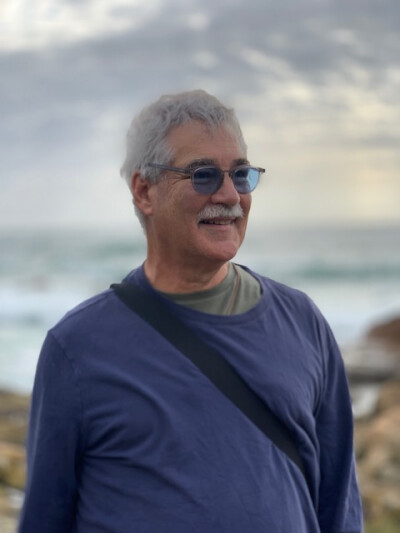 The Rev. Dr. Roderick J. Miller is the author of this Positive Intelligence resource: Living Like Christ, a Banquet of Spiritual Exercises.
The Rev. Dr. Roderick J. Miller is the author of this Positive Intelligence resource: Living Like Christ, a Banquet of Spiritual Exercises.
Dr. Miller is a transformational leader, organizational consultant, coach and pastor. He understands his calling to be a catalyst for what wants to emerge in churches, organizations, groups, and individuals. As an ordained pastor for 42 years in The United Methodist Church, he served for six years as the Director of Connectional Ministries for the Baltimore-Washington Conference. As senior pastor of three large BWC churches, he set vision and direction, developed and managed staff, raised capital funds, and developed strategic programs to empower persons.
Currently, he serves as a Positive Intelligence Master Coach and co-leads the Positive Intelligence and Spirituality coaches group. Recently, he was certified as a speaker for Vistage, which is comprised of small groups of business leaders. For six years, he co-led a group of faith leaders in Howard County, Maryland, which held dialogues on race and faith with 240 county leaders and laity of Jewish, Moslem, Catholic, Protestant and other spiritual groups. Dr. Miller is also skilled in assisting groups in developing intercultural competency and emotional intelligence. He is a bridge builder who enjoys working collaboratively to develop relationships and partnerships with diverse groups. Creative action outcomes ensue from his facilitation of experiential processes.
